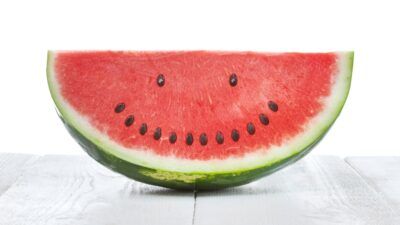Meat and brain health? Vegan diets are best – it’s a no-brainer!

Another vegan-bashing article, not supported by the research, hits the headlines.
A recent Daily Mail headline told how a Harvard doctor says meat is essential for mental health. Psychiatrist Dr Georgia Ede describes herself as an ‘accidental nutritionist’ and in her new book Change Your Diet, Change Your Mind, suggests everything we think we know about brain-healthy diets is wrong and says “meat is not dangerous, vegan diets are not healthier, and antioxidants are not the answer.”
Describing meat as ‘not dangerous’ when scientists have revealed countless links between red and processed meat and a wide range of diseases, and the World Health Organisation classes them as a cause of cancer suggests a questionable understanding of the science at best! Research in the British Medical Journal (including highly esteemed authors from Harvard Medical School), found that red and processed meat increase the risk of dying early by nine and 13 per cent respectively. I would say meat IS dangerous!
Ede argues that vegans may miss out on nutrients such as vitamin B12, omega-3s, zinc, choline, iron and iodine. This is not supported by science – all large health bodies agree a well-panned healthy vegan diet can provide all you need. The studies cited in the Daily Mail article didn’t inspire confidence in the argument supporting meat eating. Firstly, they cited the same study twice, presenting it as two different studies! A little digging revealed funding for this meat-supporting study came from an unrestricted research grant from the Beef Checkoff, through the US National Cattlemen’s Beef Association.
Another study they cited suggests vegetarians in Brazil may have a higher risk of depression, but on inspection, the authors actually say the apparent higher risk cannot be explained by a difference in nutrient intake. So, do vegetarians and vegans miss out or not? You can’t have it both ways! This study suggests social factors may be to blame as studies in Asian countries, with a high prevalence of vegetarianism, show no relationship between veggie diets and depression. Taken together, there’s no convincing argument for meat-eating to protect brain health.
On the other hand, there is a wealth of evidence showing how a healthy, varied, vegan diet offers the most benefits for brain health and mood. This may be because diets based on processed, high-sugar, high-fat foods and red and processed meats, can activate inflammation, which is not only linked to heart disease, diabetes, cancers and cognitive disorders such as Alzheimer’s disease but also to a higher risk of depression.
Researchers from University College London looked at the diets of almost 33,000 people in France, Australia, Spain, UK and the US included in 41 studies and found that those who follow the classic Mediterranean diet, containing little or no red meat, were around 33 per cent less likely to develop depression compared with typical meaty Western diets.
Another study, looking at over 25,000 people in Peru, found that the more fruit and vegetables they ate, the less likely they were to be depressed.
Another study published in the Nutrition Journal compared 60 vegetarians to 78 meat-eaters and found that the veggies experienced fewer negative emotions.
A further study looked at the effects of giving a group of 39 meat-eaters a different diet and found that the mood scores of those on the vegetarian diet improved significantly after just two weeks – mood scores for those continuing to eat meat and fish remained the same.
An Australian study explored the links in 129 meat-eaters, 151 vegetarians and 216 vegans and found that high-quality, plant-based diets resulted in a lower risk of depressive symptoms and that this effect was highest among the vegan participants.
There is plenty more research like this! Add to that all the research showing how a healthy, varied vegan diet lowers the risk of dementia and you have it – a vegan diet is best for your body and your brain!







